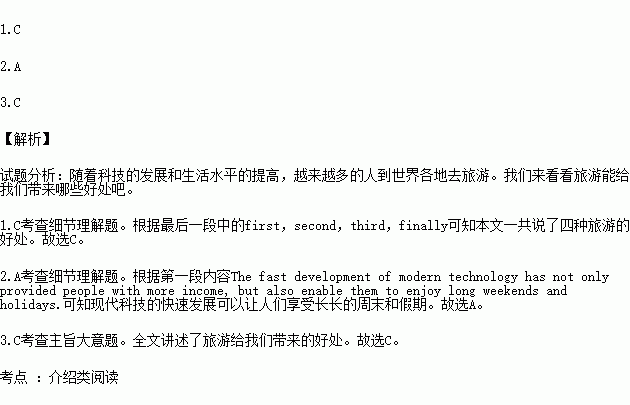题目内容
The fast development of modern technology has not only provided people with more income, but also enable them to enjoy long weekends and holidays. Never before have so many people traveled to so many different parts of the world and, with the help of fast, comfortable forms of modern transport, more and more people are tempted to(试图)leave their homes to see more of the world. It seems as if there are travelers everywhere.
People travel because traveling benefits them in a number of ways. First, it enables them to get much pleasure from sight-seeing and photo-taking. Second, traveling makes them fully relaxed and ready to get back to work happily. Third, it offers them an opportunity to visit old friends and make new friends as well. Finally, it allows them to see different customs, learn new things, gain new experience and enables them to come back with a broader mind.
With so many advantages to traveling, I think people should be encouraged to travel from time to time, especially on holidays, if their pocket and health permit.
1. Traveling benefits people in. ways
A. 2 B. 3 C. 4 D. 5
2.According to the passage, with the fast development of modern technology, what can people do?
A. People can enjoy long weekends and holidays
B. People have less money
C. people can do more shopping
D. People become lazy
3.What’s the best title of this passage?
A. Why people have more income
B. Why people like to work
C. Why people travel
D. Why people become relaxed


